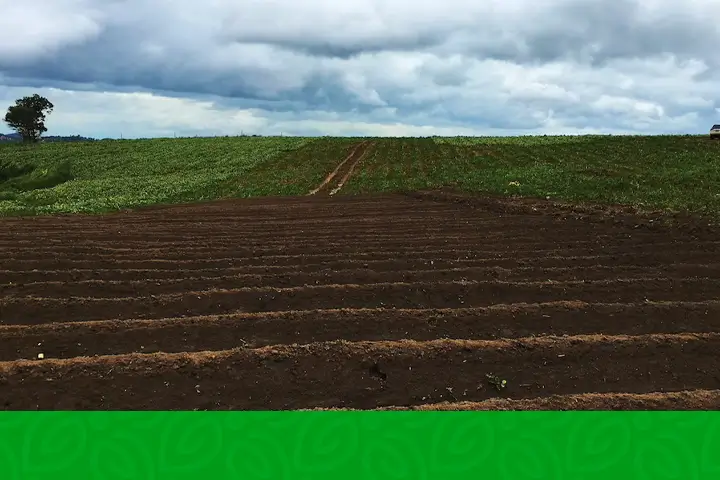

By Christopher Burke
Senior Advisor, WMC Africa
Africa stands poised for an unprecedented agricultural transformation. Rich soils, diverse climates and increasing interest from regional and global investors provide potential for the continent to become an agricultural powerhouse. Unlocking the full potential is heavily contingent on securing inclusive, transparent and responsible access to land. The manner in which land is acquired and managed will determine whether investment translates into sustainable growth, food security, job creation and equitable rural development—all in critical demand across much of Sub-Saharan Africa today.
As traditional Official Development Assistance (ODA) plateaus, investment in infrastructure and agribusiness from diverse partners including China, India and the Middle East grows. Foreign investment on the continent continues to rise steadily as the population doubles to 2.4 billion by 2050. A robust commitment to land governance practices is critical for the sake of equitable, inclusive and sustainable growth if full potential is to be realized. Transparent and inclusive land acquisition begins with participatory planning, integrated mapping, tenure clarification and meaningful engagement with both statutory and customary institutions.
Advances in technology are transforming land governance making systems more efficient, transparent and cost-effective. Digital platforms such as Rwanda’s Land Administration Information System (LAIS), the Land Administration Project (LAP) in Ghana and the Ugandan National Land Information System (UgNLIS) streamline registration processes, lower transaction costs and help resolve disputes. Of course, technology alone is not enough. Effective implementation must also uphold core principles such as Free, Prior and Informed Consent (FPIC) as set out in international standards such as the UN Declaration on the Rights of Indigenous Peoples (UNDRIP). FPIC is not only a legal and ethical requirement, but a practical necessity to minimize local resistance, avoid delays and reduce investment failures.
The integration of environmental, social and governance (ESG) principles into land management is increasingly essential. Global financial institutions, especially the International Finance Corporation (IFC), now embed rigorous ESG criteria within investment frameworks. Compliance with IFC Performance Standards on Environmental and Social Sustainability ensures responsible practices, bolsters investor confidence and facilitates access to sustainable finance instruments including green bonds and impact investment.
Despite clear global guidelines, many countries across Sub-Saharan Africa continue to endure the consequences of poor land governance practices. These deter investment and often trigger social, economic and political tensions. Unclear land rights and inadequate community engagement have stall countless agricultural projects across the continent.
While the Land Matrix, an independent global initiative that tracks large-scale land acquisitions (LSLA), reports 87 per cent of countries in Africa present unsatisfactory results in the implementation for the Voluntary Guidelines on the Responsible Governance of Tenure (VGGTs); positive examples do exist and indicate ways forward. Ethiopia’s participatory land certification initiatives have significantly enhanced tenure security for smallholders, reduced disputes and stimulated agricultural productivity.
Mozambique’s community land delimitation program has successfully documented customary rights, facilitating fair negotiation between communities and investors; and the Ugandan Investment Authority (UIA) has identified and allocated land for large scale agricultural development. These successes underscore the value of adherence to globally recognized frameworks including the VGGTs. Developed by the UN Committee on World Food Security, the VGGTs advocate transparency, non-discrimination, gender equality and conflict resolution as pillars of sustainable land governance.
Continental frameworks such as the 2009 African Union (AU) Declaration on Land Issues and Challenges in Africa and the 2010 AU Framework and Guidelines on Land Policy in Africa developed by the African Union, United Nations Economic Commission for Africa (UNECA) and the African Development Bank emphasize tenure security, gender equity, respect for customary systems and dispute resolution mechanisms. The 2014 Malabo Declaration on Accelerated Agricultural Growth and Transformation further reinforces commitments to equitable land access as essential for achieving agricultural productivity, food security and poverty reduction.
These frameworks align with the African Union’s strategic vision outlined in Agenda 2063 that positions secure land rights as central to achieving inclusive growth and sustainable development. The African Development Bank’s (ADBs) Integrated Safeguards System (ISS) also mandates environmental and social standards, including rigorous guidelines on land acquisition, resettlement and tenure security; reinforcing the importance of responsible and sustainable land governance.
Alignment with global sustainability targets such as the United Nations Sustainable Development Goals (SDGs) underscores the interconnectedness of land governance with poverty alleviation, food security, gender equality and environmental sustainability. SDG Targets 1.4, 2.3 and 5.a focus explicitly on secure and equitable land access as prerequisites for rural prosperity while SDG 16.3 and 16.7 promote the rule of law, equal access to justice and inclusive, participatory and representative decision-making at all levels. A recent World Bank report titled “Land Policy for Growth and Poverty Reduction in Africa: Emerging Evidence and Lessons” identifies poor land governance as a leading cause of investment failure across sub-Saharan Africa and calls for African nations to pursue coordinated reforms.
Creative financing models comprising public-private partnerships (PPPs), land value capture mechanisms, blended finance and green infrastructure bonds offer promising avenues to bridge financing gaps. Investments in rural infrastructure including irrigation systems, roads and storage facilities on secure land can catalyze broader economic development and enhance land values.
Securing land for development must avoid dispossession and prioritize inclusive growth. Responsible governance demands balancing the rights of current users, traditional custodians and future generations. This requires a certain level of political will for robust investments in tenure security, participatory tools, legal literacy, grievance redress mechanisms and ongoing monitoring.
Africa has an opportunity to lead by example and demonstrate that sustainable agricultural transformation is achievable through technically sound, socially inclusive and politically coherent land governance. The effective implementation of global and continental commitments will enable African nations to transform vast land resources into drivers of equitable and resilient growth, fostering trust among communities, investors and governments while creating a solid foundation for lasting prosperity.
END
Christopher Burke formerly served as Senior Land Tenure Officer and VGGT Coordinator with United Nations Food and Agriculture Organization (UN FAO). He is currently an advisor at WMC Africa, a communications and advisory agency located in Kampala, Uganda. With almost 30 years of experience, Christopher has worked extensively on social, political and economic development issues focused on agriculture, governance, environment, community mobilization, communications, peace-building and international relations in Asia and Africa.


















